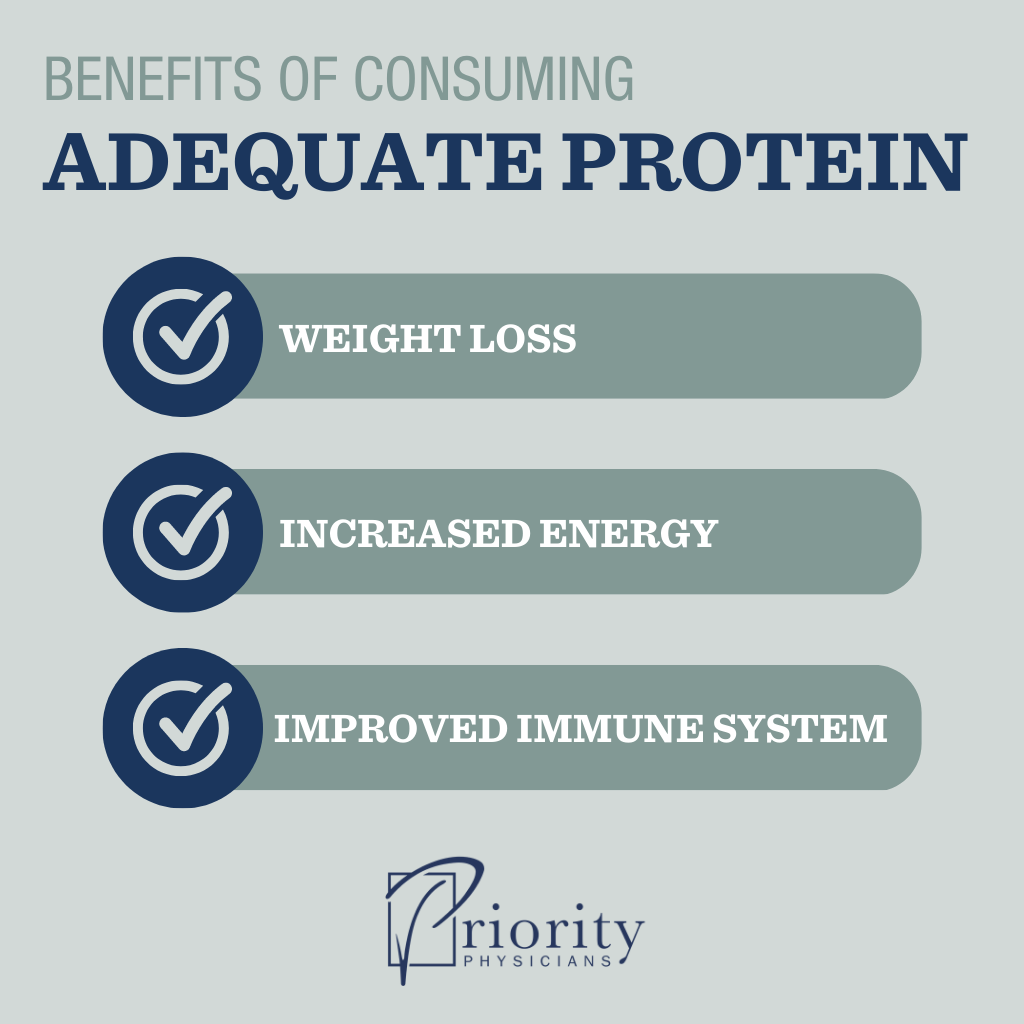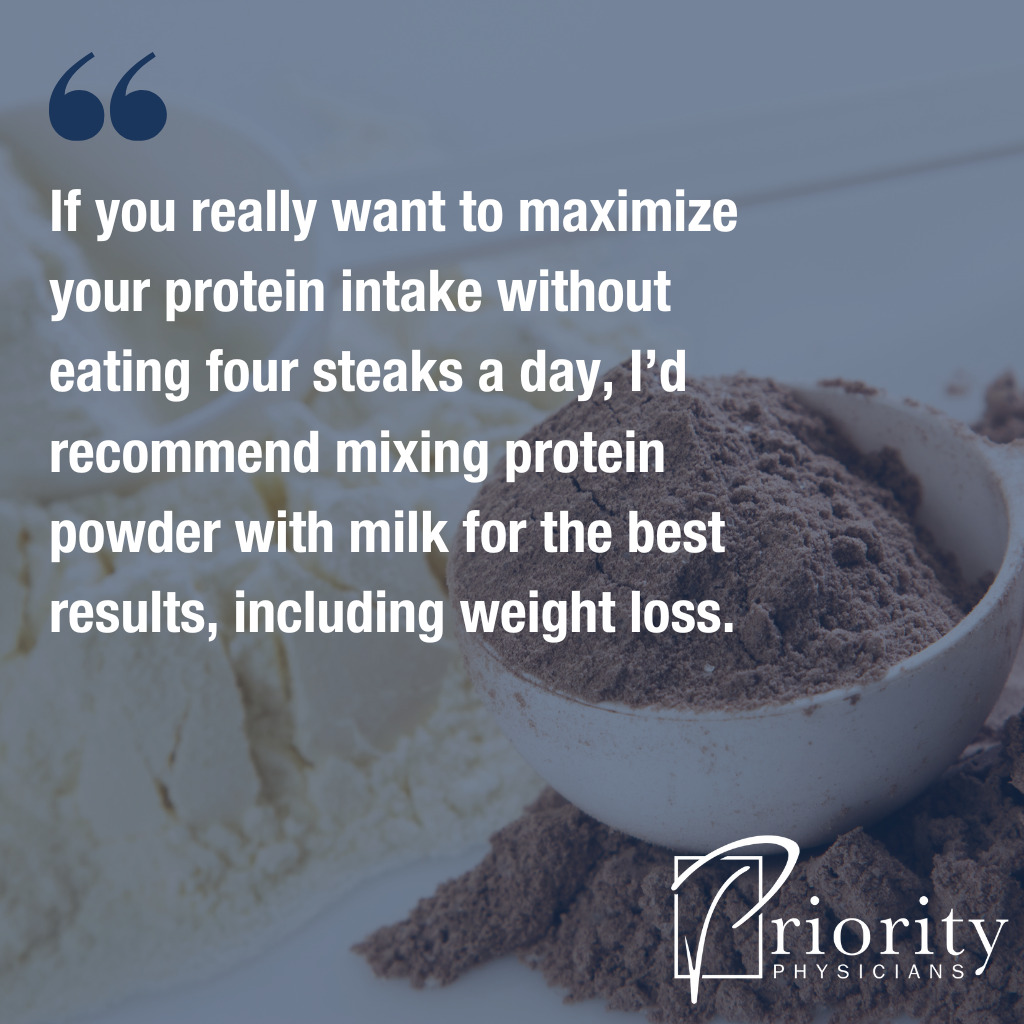If you’re like me, you grew up learning about the nutritional system through the food pyramid model.
It starts with grains on the bottom. Fruits, vegetables, and the other food groups stack in smaller blocks on top, in order of recommended portion size.
Recently, though, the nutritional recommendation we grew up with was flipped on its head.
Our understanding of nutrition has greatly evolved over the past 30 years, but most American diets haven’t changed to reflect this knowledge. Case in point: Most Americans don’t get enough protein.
There are some reasons protein might not have been central to our dietary recommendations in the past. For one, protein sources were once very expensive. Comparatively, grains are cheap and readily available.
But as protein sources have become more accessible, protein recommendations have changed, and many people have turned to protein shakes to supplement their daily intake and help lose weight.
If you’re one of those people, or if you’d like to be, you may be wondering what to mix protein powder with for weight loss.

What Happens If We Don’t Consume Enough Protein?
Let me clarify a common misconception: You can consume too much protein, and kidney stones are a very real consequence of that. Please talk to your doctor before making any dietary changes.
That said, as I’ve written before, muscle mass is the key to longevity. If you want to have a good quality of life in your 80s and 90s, start building muscle now.
Why? For one thing, if your strength declines as you age, you’re more likely to lose your balance and fall. Those falls can lead to serious injuries, like breaking a hip, which could rob you of your ability to live independently.
Resistance training is one component of building muscle, but you must also give your body the fuel it needs to rebuild and maintain that muscle. That fuel is protein.
In addition to increased mobility and longevity in old age, consuming protein can lead to several other improvements to your quality of life:
- Weight loss: You’re more likely to build muscle when you consume more protein. Muscle cells burn more energy than fat cells, which means you’ll burn more calories throughout the day just by existing.
- Increased energy: It takes more energy to break down protein than it does to break down other molecules, like carbohydrates and grains. This means protein will leave you feeling fuller longer.
- Improved immune system: Protein molecules are made of amino acids, which help build the key cells of your immune system, like B- and T-cells.
What Is the Recommended Daily Protein Intake?
The current recommended daily allowance for protein is 0.8 grams of protein for every kilogram of body weight. For example, a person who weighs 200 pounds weighs roughly 90 kilograms, meaning they need to consume around 72 grams of protein per day.
However, the recommended daily allowance is a vast underestimate. Some health experts recommend two whole grams of protein for every kilogram of body weight. With this calculation, that same 200-pound person now needs to eat 180 grams of protein per day.
Truthfully, if you try to take in that much natural protein, you’ll be eating protein non-stop. You’ll be miserable and sick of it. Luckily, there are a couple of different sources you can use to achieve your protein goals, and they aren’t all meat-based.
Alternative Protein Sources
Protein powder is a great way to boost your protein intake. You can consume a protein shake as a between-meal snack, or add protein powder to things you already eat, like baked goods. Powders are great because they can help boost your protein intake without leaving you feeling too full.
Meats like steak and chicken are also classic protein sources. A six-ounce serving of steak and an eight-ounce chicken breast both contain about 40 grams of protein. Eggs, beans, and nuts are also natural sources of protein you can easily incorporate into vegetarian meals. Consuming adequate protein is especially important for people following vegetarian or vegan diets, too.
If you really want to maximize your protein intake without eating four steaks a day, I’d recommend mixing protein powder with milk for the best results, including weight loss. Because milk contains protein, it’s a great base for a protein powder drink.
By optimizing your protein intake with two different sources (a powder and milk) combined, you’ll feel fuller for longer, which can help you lose weight, among other benefits.

Final Thoughts on What to Mix Protein Powder With for Weight Loss
Our dietary guidelines have changed, and so should our diets. The vast majority of Americans could benefit from consuming more protein every day.
There are plenty of health benefits to achieving your daily protein goals, and luckily, there are plenty of protein sources readily available to help you do so. Now that you know what to mix protein powder with for weight loss, you can enjoy all the benefits protein provides for a long and healthy life.

